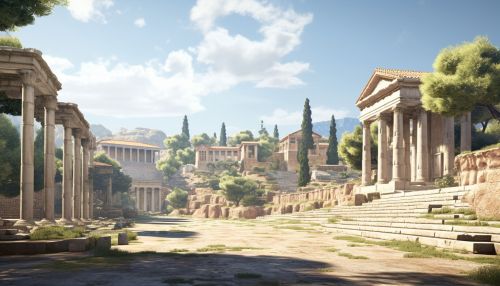Democracy
Definition and Origins
Democracy is a form of government in which power is vested in the people, who rule either directly or through freely elected representatives. The term is derived from the Greek words "demos" (people) and "kratos" (rule), and was first used in ancient Athens in the 5th century BC.


The concept of democracy has evolved over centuries, with different societies and cultures interpreting and implementing it in various ways. This has resulted in a variety of democratic systems, each with its own unique characteristics and nuances.
Types of Democracy
There are two primary types of democracy: direct and representative.
Direct Democracy
In a direct democracy, all citizens have the opportunity to participate in decision-making directly. This was the method used in ancient Athens, where citizens would gather in the Agora to vote on important matters. Modern examples of direct democracy are rare, but can be seen in certain cantons of Switzerland, where citizens can propose changes to the constitution or challenge laws.
Representative Democracy
Most modern democracies are representative democracies, where citizens elect representatives to make decisions on their behalf. This system was developed to manage the practical difficulties of direct democracy in large and complex societies. Representative democracies can be further divided into parliamentary, presidential, and semi-presidential systems.
Principles of Democracy
Democracy is based on several key principles:
1. Popular Sovereignty: The power of the government is derived from the people. This is often expressed through the concept of "majority rule," although the rights of the minority are also protected.
2. Equality: All citizens are equal under the law and are entitled to equal protection of their rights.
3. Freedom: Citizens have certain fundamental rights that the government cannot infringe upon, such as freedom of speech, religion, and assembly.
4. Pluralism: A healthy democracy allows for the existence of diverse social, political, and cultural groups.
Democracy and Human Rights
Democracy is closely linked with the concept of human rights. In a democratic society, the government is expected to respect, protect, and fulfill the human rights of its citizens. These rights include civil and political rights, such as the right to life, liberty, and security of person; freedom of thought, conscience, and religion; and freedom of opinion and expression.
Challenges to Democracy
While democracy is widely considered the most just form of government, it is not without its challenges. These include the potential for majority rule to become oppressive, the risk of corruption, and the difficulty of ensuring that all citizens are informed and engaged.
Democracy Around the World
Today, democracy is the most common form of government around the world, although its implementation varies widely. Some countries, such as the United States and United Kingdom, have long-established democratic systems, while others, such as Myanmar and Tunisia, are in the process of transitioning to democracy.
